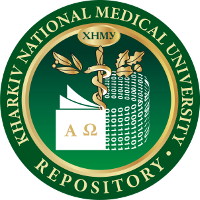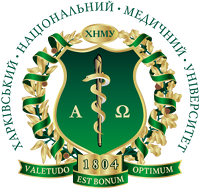Please use this identifier to cite or link to this item:
http://repo.knmu.edu.ua/handle/123456789/29423| Title: | Model of personalized non-pharmacological program of cognitive correction in patients with epilepsy and the assessment of its efficacy |
| Authors: | Blazhyna, I. |
| Keywords: | epilepsy cognitive disorders cognitive training computerized training |
| Issue Date: | 2021 |
| Citation: | Blazhyna I. Model of personalized non-pharmacological program of cognitive correction in patients with epilepsy and the assessment of its efficacy / I. Blazhyna // Journal of Education, Health and Sport. – 2021. – Vol. 11, №2. – P. 208–221. |
| Abstract: | Cognitive dysfunction shows higher incidence in people, suffering from epilepsy, than in general population and most likely they are related to common patho-biological processes. The use of medication in patients with epilepsy for treating cognitive functions is limited due to the potential risk of more frequent seizures. Therefore, non-pharmacological methods of cognitive correction are becoming especially important for this category of patients. Aim. The aim of the research is to study the specifics of non-dementia cognitive disorders in patients with epilepsy and to develop a set of activities for their prevention and non-pharmacological correction. Materials and methods. The study included 146 patients (61 women and 85 men), their average age was 40,73. We applied clinical anamnestic, sociodemographic, clinical psychopathological, psycho-diagnostic and statistical research methods. The following psycho-diagnostic techniques were used: Montreal Cognitive Assessment (MoCA), Munsterberg test, MiniMult test, Hamilton depression and anxiety rating scales (HRDS, HARS) and the quality of life scale. 63 patients completed a 3-month computerized online 209 cognitive training with daily sessions, out of which 33 patients also participated in psychoeducational activities. Results. The findings of studying patients with epilepsy using the Montreal Cognitive Assessment (MoCA) showed low levels of all parameters while the total score in the patients with epilepsy with cognitive non-dementia disorders was 20,72 versus 27,36 in healthy persons; the analysis of HRDS, HARS showed high anxiety and depression symptoms levels, lower quality of life level was also observed, the average indicator was 69,45, whereas in the control group the level of life quality was 78,60. There was marked adherence to cognitive training in the patients with epilepsy compared to the healthy group. Conclusion. Reliable improvement of cognitive functioning was found in the patients under consideration after 3 months of the training. The computerized cognitive functions training in current conditions showed its benefits owing to the opportunity to complete it online. It may be advised to be introduced as a part of the social rehabilitation system for patients with epilepsy, who have cognitive non-dementia disorders. |
| URI: | https://repo.knmu.edu.ua/handle/123456789/29423 |
| Appears in Collections: | Наукові праці. Кафедра психіатрії, наркології, медичної психології та соціальної роботи |
Files in This Item:
| File | Description | Size | Format | |
|---|---|---|---|---|
| Блажина.pdf | 391,57 kB | Adobe PDF |  View/Open |
Items in DSpace are protected by copyright, with all rights reserved, unless otherwise indicated.

